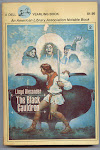Edward De Vere, 17th Earl of Oxford
Hamlet Himself
"Shake-Speare"
Some Parallels, Oxford and the Shakespeare canon:
Hamlet: Hamlet's mother remarried almost immediately after her husband died. Oxford's mother remarried almost immediately after her husband died. Polonius is a perfect portrayal of Oxford's guardian, Lord Burleigh; he even copies some of Burleigh's sayings. Hamlet's ship was captured by pirates, and they let Hamlet go; this happened to Oxford twice. Hamlet was a prince who never got to be king; Oxford was possibly a prince (son of Queen Elizabeth) who never got to be king. After Hamlet's death, a prince from the north (Fortinbras) ruled Denmark; after Q.E.'s death, a prince from the north (James VI of Scotland) ruled England. Oxford also died that same year, but after James became king.
King Lear: Lear had three daughters who caused him trouble. Oxford had three daughters who caused problems, though not intentionally.
All's Well That Ends Well: Bertram's wife substitutes herself for Bertram's paramour and gets him to accept her as his wife. (Putting it delicately.) When Oxford's wife had a baby when he had been out of the country for 10 months, Oxford's father-in-law (Lord Burleigh) said that he had arranged for the wife to replace some other woman in Oxford's bed, just before Oxford left England but had been away from home for a month. It didn't quite fit the time frame, but Oxford eventually accepted the story and the child.
The Winter's Tale involves a royal child who is rejected by the king. "... the king shall live without an heir if that which is lost be not found." This reflects the view of us who think that Oxford was Queen Elizabeth's illegitimate son. She did indeed die without an heir.
Pericles, Prince of Tyre: The parallel here is all in the first act of the play, reflecting a rumor that Oxford heard about his first wife and her father.
The Sonnets: (1) In several of the sonnets, the author refers to himself as being lame. Oxford as a young man was injured in a duel and was lame the rest of his life.
(2) Some of the sonnets are addressed to a young nobleman, who some think was Shakespeare's lover. However, there is more evidence, in the wording of the sonnets, that he was addressing the young man as his son, and subsequent events tended to confirm this. Oxford was very partial to the Earl of Southampton, who was many years his junior, and whose mother had been rumored as one of Oxford's lovers. Southampton, rumored to be Oxford's son, was involved in the conspiracy by the Earl of Essex to take over the throne; Queen Elizabeth had Essex and other conspirators executed but pardoned Southampton.

















6 comments:
Where's the meeting this year? Are you thinking of going?
I don't know who or what Shakespeare was or wasn't, but I love Pat's depiction of whoever he was. Rames, you should write a Shakespeare play about a possum.
McPossum?
Ham-Possum?
The Possum of Venice?
Romeo and Juliet and a Possum?
The Taming of the Possum?
The possumbilities are endless.
A Midsummer Night's Possum?
All's Well That Ends With a Possum
The Merry Possums of Windsor
Much Ado About a Possum
Twelfth Possum
Two Possums of Verona
A Possum's Tale
The Possum's Tail
The meeting has already been. It was in Oregon. I don't think they've announced the 2011 place yet.
The Possum's Tail would be a good one, Ramey. You could even use the stage direction: "Exit, pursued by a bear."
It looks like those Cornwell books didn't last very long!
What did you think about the ending of Heretic? For some reason, that got to me, even though the rest of the 3 books were just okay. Well, a bit better than okay - entertaining, but not very emotionally engaging.
Post a Comment